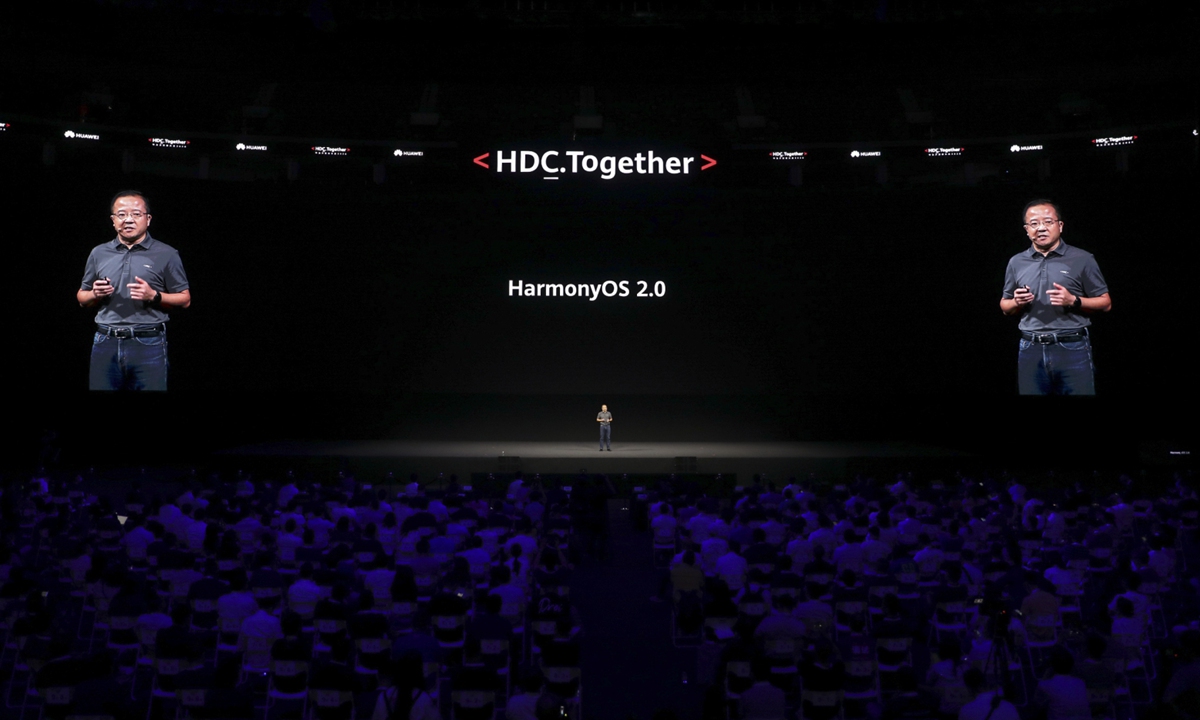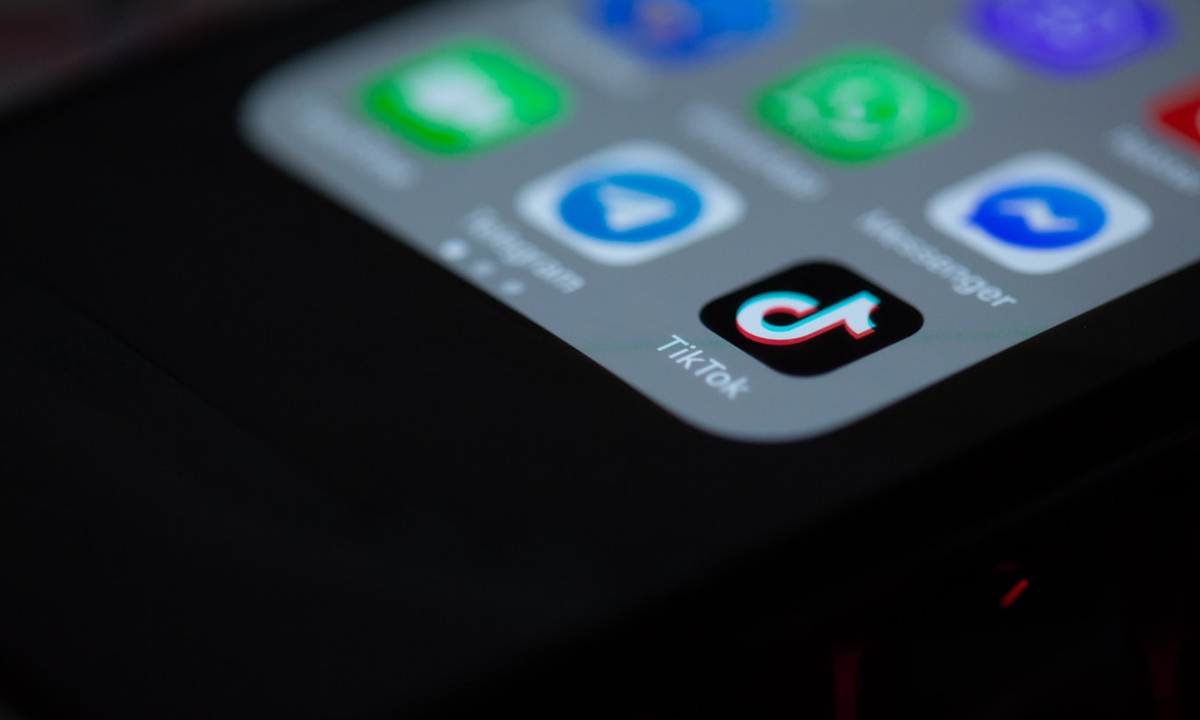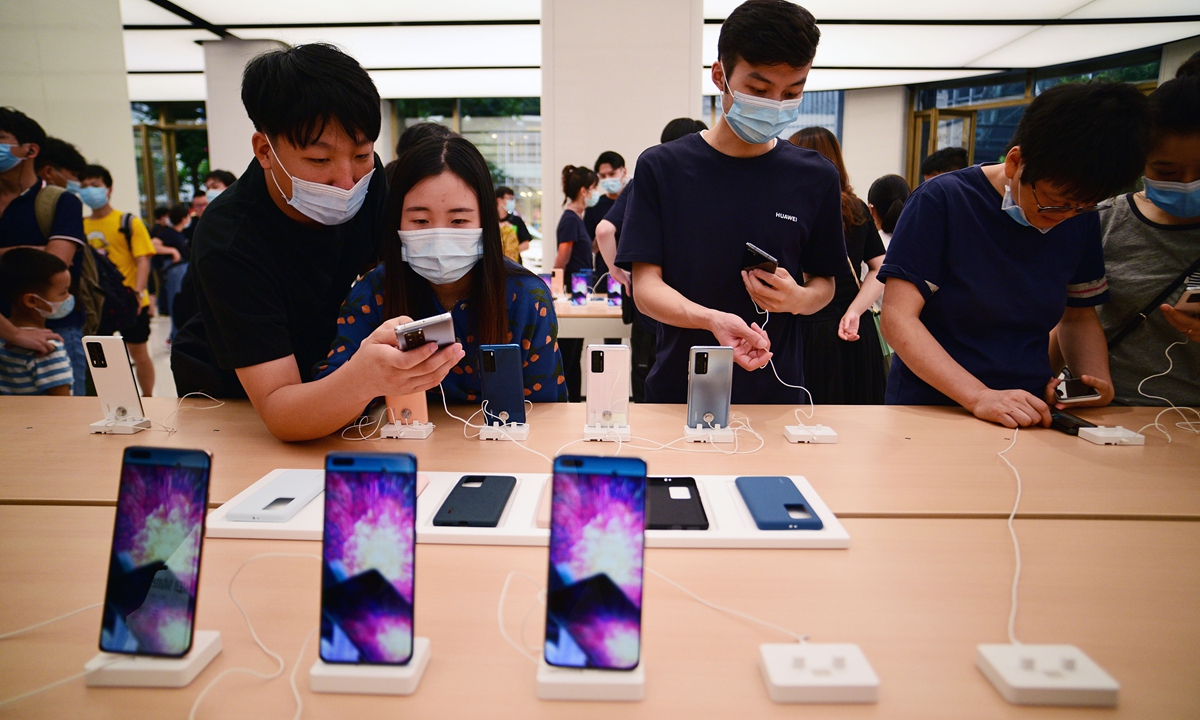Over 100 million devices to run on HarmonyOS in a year: Huawei executive
By Chen Qingqing in Dongguan Source: Global Times Published: 2020/9/11 20:33:40 Last Updated: 2020/9/11 21:40:43
Huawei’s mobile ecosystem to help shield from political crackdown

Photo: Courtesy of Huawei
The US government's relentless attacks on Chinese apps such as WeChat and TikTok have become a "wake-up" call for China's high-tech industry. While some are considering reducing reliance on US-made technologies, especially in their operating systems, Chinese tech giant Huawei gave another choice, aiming to help more apps go abroad without fearing that one day they would be blocked for political reasons.
While Huawei unveiled its latest HarmonyOS 2.0 as a direct response to extreme crackdown of the US government for over a year, the Chinese tech giant has bigger ambitions by building its own Huawei Mobile Services (HMS) ecosystem to compete with the two largest operating systems - Apple's iOS and Google's Android.
To help more domestic app developers go abroad, Huawei and a dozen Chinese software developers formed an HMS-based alliance for going overseas, Wang Yanmin, who is in charge of global ecosystem development for Huawei's consumer business, said at the ongoing Huawei Developers Conference 2020 (HDC2020), a three-day event in South China's Guangdong Province.
Europe remains a major market for building an HMS ecosystem, as Huawei plans to establish three new ecosystem labs in Germany, Poland and Russia, while setting up five new global developer service centers in Romania, Russia, Egypt, Mexico and Malaysia, Wang said.
Giving software developers another choice is also a decision at such a historical moment, which requires an all-out effort of the tech industry in China, which has to confront more bullying tactics from the Trump administration, industry representatives said.

TikTok Photo: Unsplash
US President Donald Trump issued executive orders targeting Chinese apps TikTok and WeChat in August, setting a deadline for an American company to purchase TikTok. And in 45 days, the US government would ban unspecified US transactions with WeChat and its parent company Tencent over security concerns.
Though it's unclear what the specific restrictions are, as the order is expected to take into effect around September 20, there have been growing concerns that if the ban takes effect, the dominant social messaging app would likely be forced out of Apple's App Store worldwide.
"I think it's time for our tech industry to wake up," Wang Chenglu, head of software at Huawei's consumer unit, told the Global Times.
There will be difficulties amid the escalating US crackdown, but there is always a positive side, Wang noted. Though many Chinese tech firms have entered the world's top 500, it's still "dangerous prosperity," the Huawei senior executive, who has been working in China's software industry for 20 years, told the Global Times.
Wang noted that "China's software growth has no roots" and our developers are not united against external pressure.

Huawei store Photo:VCG
The roots can stand for self-developed operating systems for mobile phones, which could also be interpreted as the fundamentals for China's high-tech sector, including core chipsets and technologies that the rise of the tech industry relies on, some industry representatives said.
"If the US attacks against Chinese apps get more intense - for example, an executive order to order the Apple Store or GMS of Google to remove WeChat or TikTok - the HMS of Huawei could still keep them in its app store for its mobile users to download," Huang Haifeng, an independent high-tech observer, told the Global Times.
However, the US ban will impact Huawei's high-end smartphones if the sanctions cut off the supply chain to smartphone chips, which would affect the development of its HarmonyOS and mobile ecosystem overseas.
Facing such uncertainties, Huawei stepped up efforts to expand the use of its self-developed operating system and mobile ecosystem for smartphones to other smart devices such as tablets, PCs and smart watches. By expanding the scope of application, Huawei hopes to build an all-in Internet of Thing (IoT) ecosystem instead of only depending on smartphone uses.
"So far, over 20 types of products and 12 million third-party products support HMS, and in one year, we expect to see over 100 million products in this ecosystem," Wang Chenglu said.
Newspaper headline: Over 100m devices to use HarmonyOS
Posted in: COMPANIES